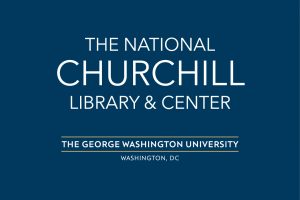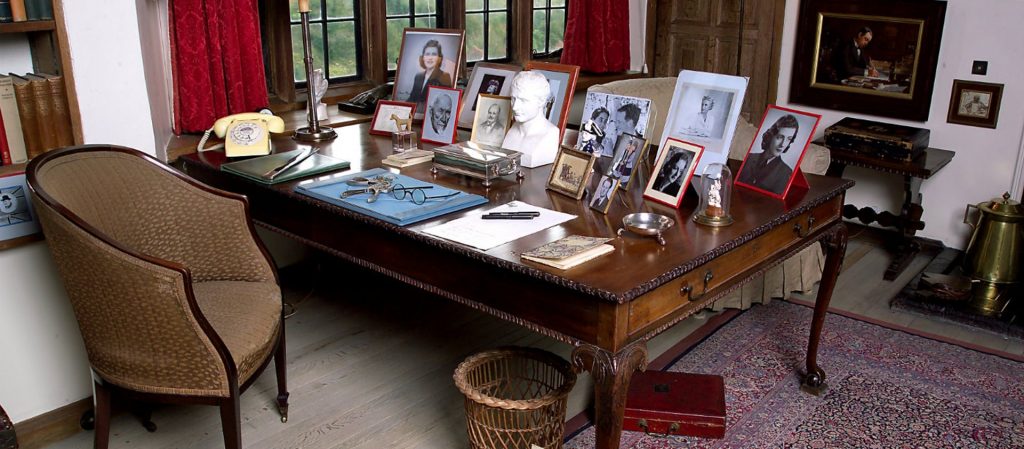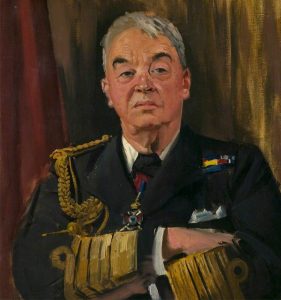
Bulletin #148 – Oct 2020
Who Influenced Churchill?

A Bust of Napoleon Stands in the Middle of Churchill’s Desk in His Chartwell Study. (Photo: National Trust)
October 3, 2020
The National Churchill Library and Center at the George Washington University in Washington, D.C. awarded its first research graduate fellowships in 2019. The grants provide $7,500 awards for short-term research projects focused on topics of relevance to Winston Churchill’s example of global leadership. One of the recipients, William Mayer of Hawaii Pacific University, summarizes the results of his finished work in the following paragraphs.
This thesis seeks to investigate how three major historical inspirations contributed to Winston Churchill’s leadership as well as how Churchill sought to use their lessons both politically and militarily to defy Hitler and the Nazi regime. Arguably, Churchill was most vulnerable during his involvement in the Great War and thus was more permeable to influence and guidance toward becoming a stronger and more effective leader. Churchill spent one day with Georges Clemenceau witnessing the morale-boosting impact that he had on the exhausted poilu (French soldier), which inspired Churchill to lead from the front as a symbol of defiance against Nazi tyranny during the Second World War.
Napoleon Bonaparte is an interesting case study for this project because of Churchill’s infatuation with the emperor. While it may seem likely that Napoleon inspired Churchill’s military leadership, he provided a more abstract influence on his leadership paradigm. Though Napoleon had garnered a vile reputation as a tyrant and conqueror, Churchill held a romanticized view of the emperor and his embodiment of the French revolutionary spirit. By no means did Churchill agree with Napoleon’s methods or actions, but Churchill did believe that Napoleon symbolized the values of the Enlightenment and the French Revolution prior to the Terror. As brutal and violent as Napoleon was, Churchill commended the Napoleonic effort to spread the ideals of liberty and freedom in defiance of absolutism and tyranny. Furthermore, he admired Napoleon’s dynamism, contagious ambition, and sense of destiny as he sought to emulate the emperor against the Nazi regime.
Horatio Nelson, on the other hand, shaped Churchill’s worldview as well as his wartime leadership. Nelson inspired Churchill’s sense of duty and ability to inspire those crippled with fear.[1] As the admiral was able to rally his men against the Napoleonic fleet, Churchill boosted British spirits against the imperious wave of Nazism. Moreover, Churchill foresaw himself in command of history awaiting his moment of Nelsonian glory. Standing at the helm of his country, Churchill recognized that to do one’s duty is not always easily accomplished but persevered against all odds as the beacon of light for the free peoples of the world before America’s entry into the war. No matter the difficulty of the decisions, Churchill understood the power of the initiative. Admiral Nelson was so successful because he took the initiative, challenged convention, and actively took risks to defeat his foe at sea. Churchill once told the Dardanelles Commission that “Victory is only wrested by running risks” [2] and in the face of the Nazi menace, he had no choice but to boldly defy his enemy and piece together the last remnants of hope to ultimately succeed.

2025 International Churchill Conference
Churchill was a lamp that illuminated the manifestation of a distinct leadership model. He cast light on the traits of Clemenceau, Napoleon, and Nelson, selected those that were most critical, and absorbed them to evolve into the leader he became in 1940. He was by no means a mirror or reflection of those that came before him. Rather, Churchill was his own man with his own unequivocal destiny. Consequently, Churchill embodied the ferocity of the ‘Tiger’, the ambition of the emperor, and courage of the admiral to create an all-powerful Churchillian paradigm of leadership that ultimately contributed to the complete defeat of Hitler and the Nazi regime.
[1] Churchill kept a smaller bust of Nelson on his desk as well. He also named his favorite cat after the legendary admiral.
[2] Martin Gilbert, Winston S. Churchill: The Challenge of War, 1914-1916, Boston: Houghton Mifflin, 1971, 120.
Subscribe
WANT MORE?
Get the Churchill Bulletin delivered to your inbox once a month.




